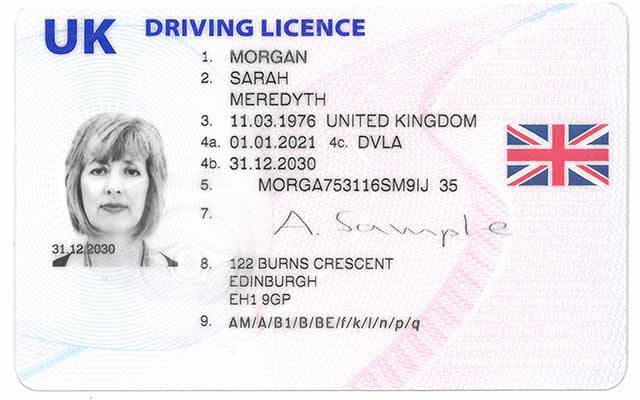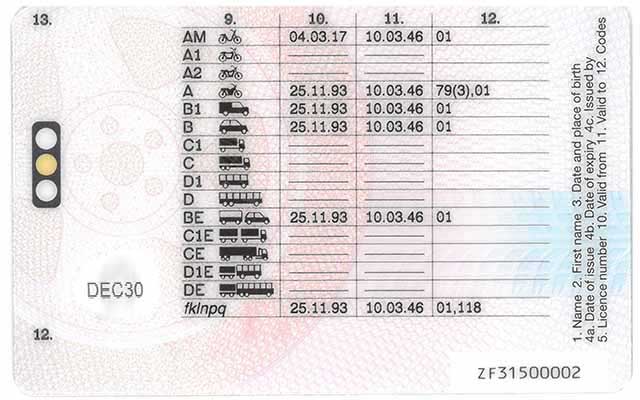
Is it time to renew your driving licence? You have to renew your photocard with a new picture every 10 years to make sure it’s up to date. It’s important to renew on time to avoid fines of up to £1,000.
You’ll also have to renew your licence if your name or address has changed.
In this article

You can renew your driving licence online on the DVLA website, at a post office or by post.
The DVLA will use your current passport photo for your new licence if you have a digital passport. If you don’t want the DVLA to use this photo or they can’t use it, you’ll need to send a photo in the post.
If your name or title has changed, you won’t be able to renew your licence online.
Find out more about how to renew your licence on the GOV.UK website.
Renewing a UK licence online costs £14 which can be paid by MasterCard, Visa, Electron or Delta debit or credit card.
If you renew at a post office, it costs £21.50. If you apply by post, you need to include a cheque or postal order for £17.
But if you’re over 70, renewing a short-term medical licence or getting an updated licence because your name, address or gender has changed, you don’t need to pay a fee.
The front of a photocard licence carries 2 dates:
The '4b' renewal date is generally 10 years after the date the licence was last issued with a new photo. But for drivers nearing or over 70 years of age, or with medical restrictions, it's the date when your entitlement to drive ends.
If the '4b' date is getting close, or has passed, you'll need to renew the photo.
Yes, you’ll receive a letter to remind you to renew your licence before the expiry date.
But if the DVLA doesn’t have your correct address then it’s likely you won’t receive your reminder letter.
You’ll need to renew your licence earlier than the expiry date if any of your personal details have changed, such as name, gender and address. This is free to do.
You can apply in advance of the expiry date if you like. The new licence will be valid from the date your application is approved instead of the expiry date of your current licence.
We fix 8 out of 10 cars at the roadside.
If your licence expired between 1 February and 31 December 2020 then you received an extension for 11 months due to coronavirus. This extension started from the original expiry date on your licence.
You don’t have to wait until then though – you can renew your licence at any point before the new deadline.
If you’re planning to drive in Europe any time soon, you’ll need to make sure your licence is renewed before you go.
It normally takes a few weeks to receive your new licence, but it may take a bit longer right now due to coronavirus.
The good news is that you can continue to drive before receiving your new licence.
Once you’ve received your new licence, you should return your old photocard to the DVLA.

If you don’t renew your licence when it expires you’re breaking the law and could face a fine of up to £1,000.
You can also face fines if you don’t update your licence if you’ve changed your name or address.
Not renewing your licence at the right time could also lead to issues with hiring a car or proving your ability to drive to your employer.
If you’ve turned 70, you’ll need to renew your licence. You can do this online, by post or at the post office and it’s free of charge.
You won't have to retake your test, but you'll have to declare any medical conditions you have and confirm that you meet the eyesight standards. We recommend that you get an eye test before renewing your licence if possible.
Once you’ve turned 70, you’ll have to renew your licence every 3 years.
If you have a short-term medical licence, you’ll need to renew it by the expiry date. This is free of charge.
Short-term medical driving licences can be renewed by post – the DVLA should send you a reminder letter 90 days before the expiry date with the right forms.
Currently, you can only renew a short-term medical licence online if you have diabetes, epilepsy, Parkinson’s disease, a visual impairment, a sleep condition, or a heart condition.
If you still have a paper driving licence issued before 1998, you don't have to worry about 10-yearly updates.
You won’t need to exchange it for a photocard licence. As long as it's still valid and your circumstances haven't changed, you can carry on using it.
There are a few occasions where you'll need to replace your paper licence with a photocard. That's if:
If any of these apply to you, you must get a new photocard licence. It costs £20 and you can apply online.